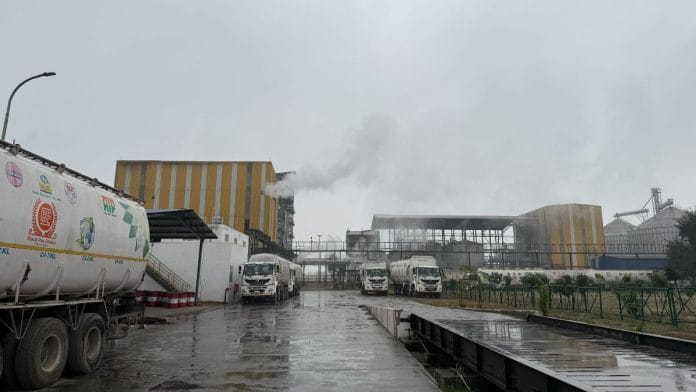Buxar: A thirty-second viral campaign video opens with a young worker beaming with pride of finding a job at the newly built ethanol factory in the historic Buxar district. This story of a young man staying home rather than migrating to Delhi in search of work is at the heart of the BJP’s campaign in the ongoing Bihar assembly election. Another video credits the ‘double-engine ki sarkar’ for making Bihar the country’s biggest ethanol hub.
Both ads end with a catchy tagline, ‘Raftaar pakad chuka hai Bihar’ — Bihar has picked up speed.
In their election speeches, leaders of the ruling alliance, BJP-JDU, are making these factories a big showcase for industrial growth and job creation, as a counter to the narrative of migration and unemployment. ‘Bihar ke kisaan anna data ke sath sath urja data bhi banege’, ‘ab bahubaliyon ke dar se udyog bhaag nhin rahe’.
It’s a small beginning but a big win for the Bihar story. And politicians are desperately using it to show that the turnaround has begun. It’s been a long time coming. The image of the migrant worker from Bihar working in Delhi, Mumbai, Bengaluru, Hyderabad, Chennai and Cochin has become one about the unequal progress of India’s growth. According to the 2022-23 Bihar Caste Survey, 2.65 crore people live outside Bihar.
Unlike textile units, which are more labour-intensive and employ a larger workforce, it is the ethanol factories with their tall chimneys rising against the skyline that are helping the Nitish government’s narrative of industrialising Bihar in this election. The factories are a powerful visual symbol for the state government.
In Nawanagar, a village about 40 km from Buxar town, the Bharat Plus Ethanol Private Limited factory operates round the clock, with smoke rising from its towers inside Bihar Industrial Development Authority (BIADA)’s industrial township. Built at a cost of Rs 200 crore on 20 acres of land, the factory has a production capacity of 100 kilolitres.
At a time when India is serious about its ethanol push in petrol vehicles, this modest factory in rural Bihar is becoming the link between Bihar and the national economy. But it’s bigger mandate is to keep Biharis in Bihar.
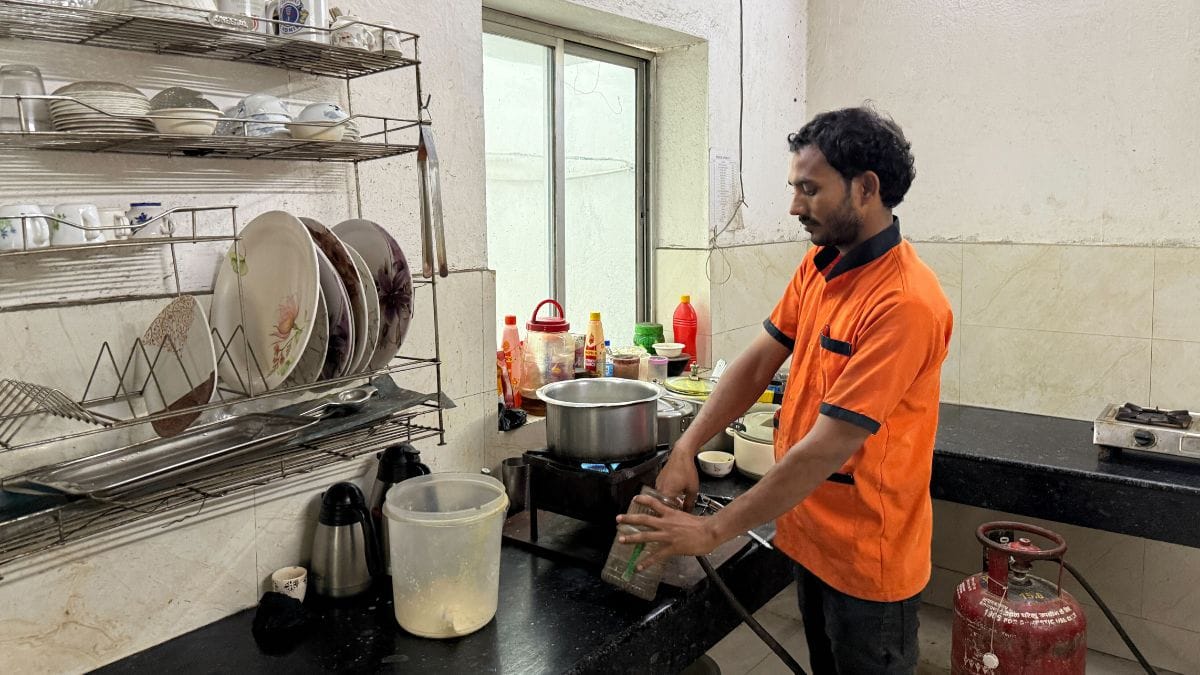
“I was the first one to set up a plant in this new industrial township. There were only paddy fields as far as I could see when I first landed here,” said Ajay Kumar Singh, Chairman and Managing Director of the company. He then brought 38-year-old Ajeet Kumar Shahi, a native of Uttar Pradesh, as the factory’s general manager of operations after its inauguration in 2024.
Soon, the factory changed Nawanagar’s face. Today, it has rental accommodations, food joints, a small tea point, and a work culture taking shape. The drive from Dumraon to the BIADA township tells a story of reverse migration and aspiration.
“My priority was to give locals a chance, and 80% of my workforce is from nearby villages within a 15-kilometre radius,” he added. The ethanol factory employs around 700 workers, of whom 300 are skilled and the rest are unskilled. Just a short distance away, Singh has opened a rice mill and a solvent plant, which together employ an additional 250 local workers.
Also read: How is ‘Vikas Raj’ going in Bihar? Roads shining, cracks in classrooms, clinics
A job near home
Prince Kumar was only sixteen when he left Nawanagar, a primarily agrarian block at the banks of Ganga, in search of work. He would spend his next four years moving from one city in south India to another, doing odd jobs, before returning to the village. While he was in Karnataka, he picked up cooking. This is what helped him survive in Nawanagar when he first came back. Nawanagar hadn’t given him the reason to return. It was marriage and family responsibilities that forced him to come back.
The eldest son of Mahender Paswan and Fulwa Devi, Kumar also had the responsibility of funding his younger brother’s education, hoping that he could break free from manual labour and try for a desk job.
“I was home, but there was not much work,” he recalled. He began by selling singhada (samosa) on a thela.
Now, at 30, Kumar works as a cook at the ethanol factory. From his modest, muddy house, the factory stands just two kilometres away. It’s been eleven months now, and he takes home a monthly salary of Rs 16,000. Each morning, a factory vehicle picks him up and drops him back home in the evening after his eight-hour shift.
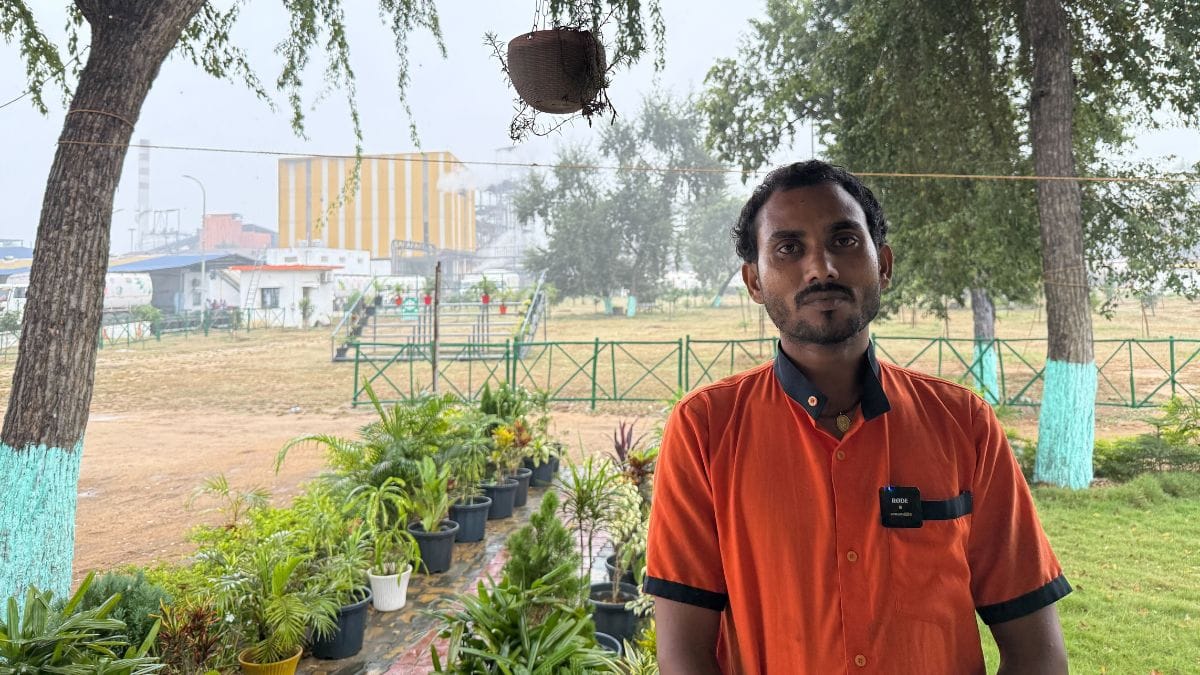
“When I saw the factory site, I used to ask the guards if there was any work for me,” he remembered. “Anyone working in a big city earns about the same,” he said, with a confident smile.
And it’s not just about money. Kumar now has time to do other jobs at home. Back home, after the shift, he tends to the family’s cattle and ploughs the small land his father owns.
And the biggest change, according to his mother Fulwa Devi, is that he no longer has to wait an entire year to come home for Chhath and Dussehra.
“Taakat milta hai (I feel supported),” she said, adding that when a family member falls ill, knowing that their son is around gives the family strength.
Also read: ‘How to talk about ladies’ problem?’ Rohtak is silent after MDU demands photo of periods
The changing small towns
The change in the lives of Prince Kumar and thousands others like him employed at ethanol factories in the state began with Bihar’s Ethanol Production Promotion Policy 2021. There was push for ethanol coming straight from the top with Union Minister Nitin Gadkari championing the national biofuel blending policy (National Policy on Biofuels 2018) on public platforms. States were encouraged to promote ethanol production. The publicity around ethanol triggered a wave of action within states—138 new plants were approved across India within a year.
Bihar became the first state in India to launch its own ethanol policy. That same year, it also set up the country’s first ethanol factory in Purnea district.
Under the policy, the state offers a 15 per cent capital subsidy on the cost of plant and machinery, or up to Rs five crore, whichever is lower. The state received 159 proposals worth Rs 30,909 crore at the beginning.
But the tenders were awarded to only seventeen units, all of which had existing 10-year supply agreements with Oil Marketing Companies (OMCs) and a combined approved production capacity of 1,080 KLPD (kilolitres per day). Today, the state has 17 dedicated ethanol plants, of which 13 are fully operational. The ethanol produced in Bihar’s factories is supplied to Indian Oil Corporation (IOCL), Bharat Petroleum (BPCL), and Hindustan Petroleum (HPCL).
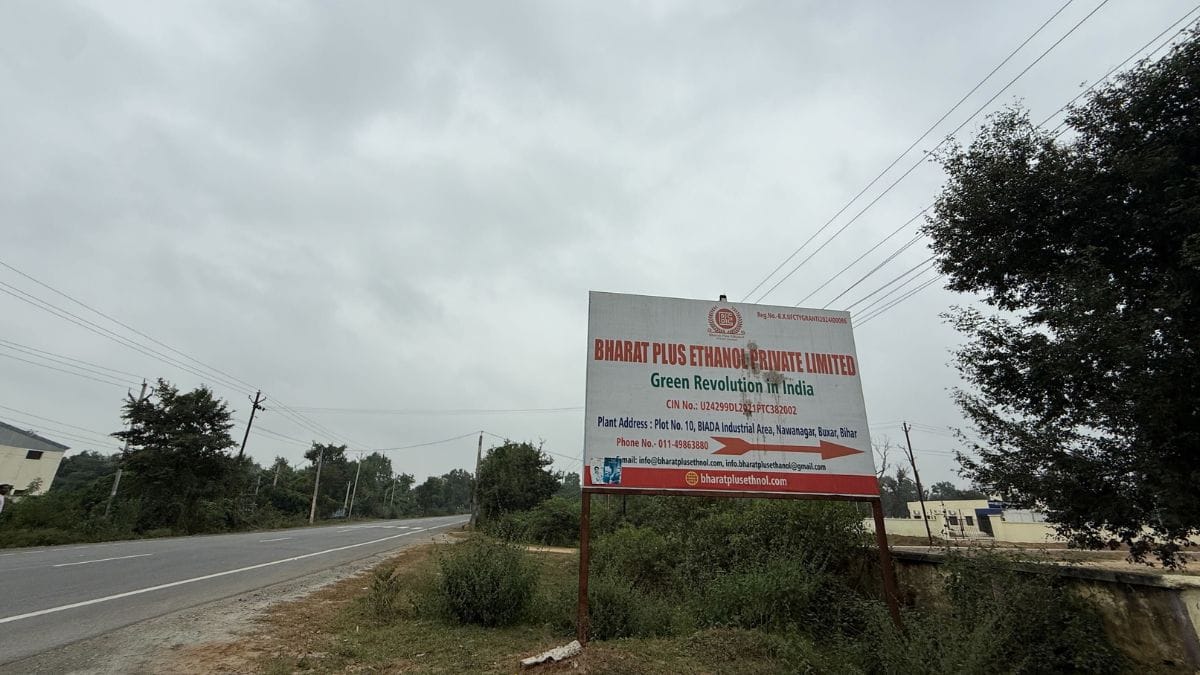
“These factories offer both psychological and physical reassurance that industry is here,” said Ajay Singh, who also heads the Bihar Ethanol Association as its president.
After he established an ethanol factory in Nawanagar’s 486-acre industrial township, brands such as Pepsi and Coca-Cola beverage plants followed. Nawanagar has now been declared an economic corridor by the Government of India.
These are baby steps for a state that has been industrially starved for decades. But also hold promise to a generation of future Biharis who might find a job in the neighbourhood.
The story of migrants returning to their villages in districts such as Begusarai, Muzaffarpur, Buxar, Purnea, Nalanda, Gopalganj, Bhojpur, and Patna, where ethanol factories came up, mirrors the transformation that Nawanagar has undergone in the last two years. In the small towns, the double-decker AC buses that ferry workers to distant cities in Rajasthan and Gujarat now share the roads with local taxis carrying the workers to nearby factories.
Also read: The GI tag man of India lives in Varanasi. He is blending culture and commerce
The desk job amid paddy fields
Twenty-year-old Chandan Kumar Yadav, a B.Com graduate from Patna’s Pataliputra University, got into one of those buses, believing that, like millions of Bihari migrants, his future too lay outside the state.
A native of Nalanda’s Charuipur village, he pressed the ‘exit Bihar’ button last year in October. Migration often dents culture. In Bihar, migration has become a big strand of culture.
“Eighty percent of my village has gone outside to work. My own brother works as a migrant worker at a construction site,” he recalled, having spent a fortnight searching for work in Mumbai. A social media ad about a data entry operator job at Buxar’s ethnol factory drew him back to his home state.
“I felt so homesick and deeply insulted at the jibes at my Bihari identity.” He admitted that it had gotten tough for him.
When he came for the interview in Buxar, he made an impression on the factory supervisor Ajeet Kumar Shahi. He was willing to work hard.
“After three months of training, we hired him as a full-time employee with a monthly salary of Rs 20,000,” Shahi said, pointing out that it is as good as a job in Noida.
Dressed neatly in a sky-blue shirt, properly shaven and focused, Chandan now spends his days typing at a desktop in the factory’s administrative block. He is also the youngest member of a three-person team.
“I like this nine-to-five job culture,” Chandan said.
He sends most money home to Nalanda, helping his parents repay debts and repair their house. He lives in the factory’s accommodation and eats at its canteen, thus maximizing his savings.
Across the state, many graduates from engineering colleges and polytechnic institutes are interning Bihar’s new ethanol factories.
“We don’t have to go to the metros to scout for talent. There’s a generation of skilled young people right here in Bihar,” said Siddharth Vats, promoter of the New Way Homes Pvt Limited ethanol plant in Begusarai.
“The youth now aspire for technical and desk jobs,” he shared, and the factories fulfill those dreams too.
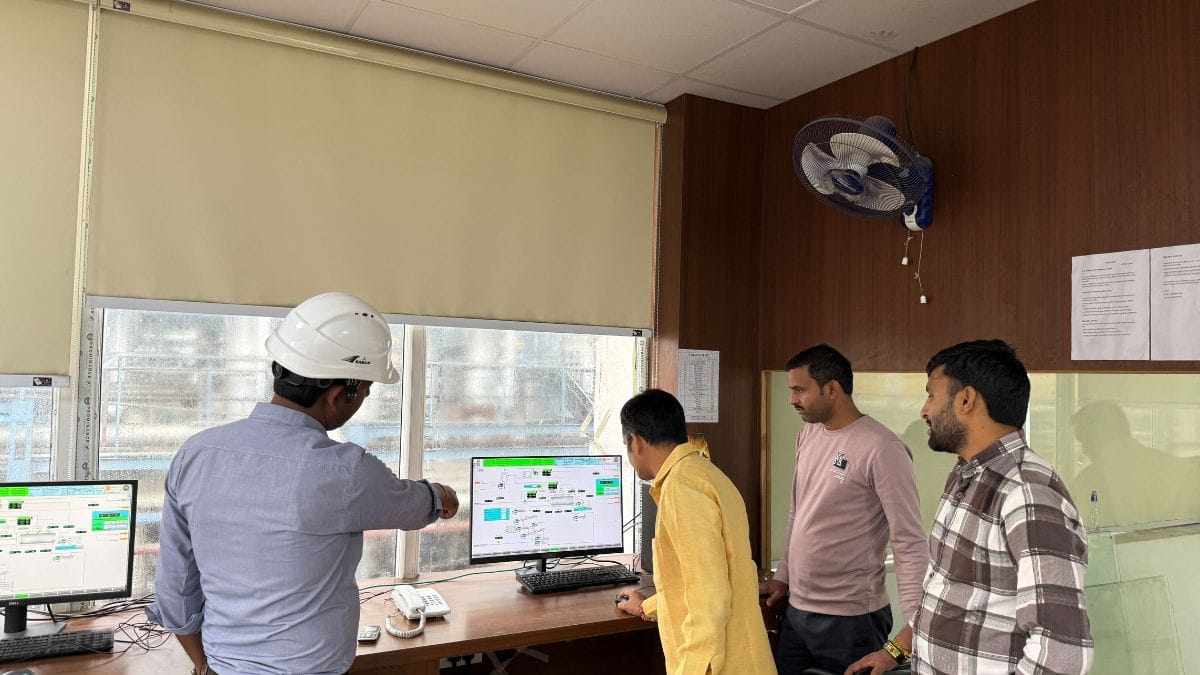
Also read: Indian workers are heading to Russia, Greece, Japan. Gulf losing its shine
The hidden crises
Even as it has emerged as a postcard for the green shoots in Bihar’s new narrative, the ethanol factories are not without problems. A crisis is unfolding within Bihar’s sunrise sector.
Away from the election rhetoric and speeches, factory owners such as Ajay Kumar Singh are submitting memorandums and seeking meetings with ministers at both the state and central levels. In his letter to the OMCs, he wrote that his factory, which operates round the clock, may have to shut down for half of November, as this year’s supply orders from the Oil Marketing Companies (OMCs) have been reduced to 50 per cent of its capacity.
This goes for all the factories in Bihar. The operational 14 ethanol plants have been allotted a 45 per cent supply order, while states like Gujarat, Rajasthan, and Tamil Nadu received 100 per cent.
“Bihar produces around 80 crore litres of ethanol annually, and we have been allotted half of its production capacity,” said Ajay Kumar Singh.
Bihar’s ethanol factories are a batch of standalone dedicated special purpose plants, unlinked from the private market. “We have long-term agreements with OMCs; we can’t sell ethanol in the open market, nor can we manufacture anything else; we are designated ethanol-only plants.”
Around 2022-23, everyone was talking about ethanol. “Many businessmen jumped in, and set up plants outside the OMC Long-term offtake agreement (LTOA) category,” Singh recalled.
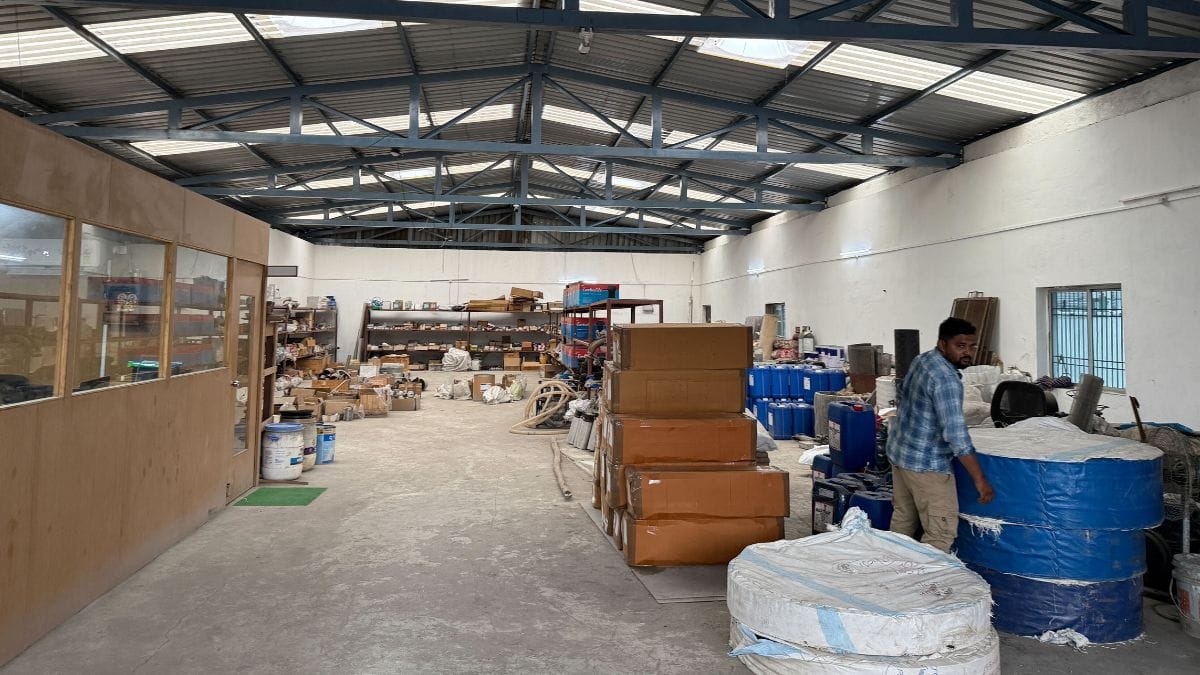
This led to a surplus production of ethanol across the country. OMCs are starting to buy from sugar cooperatives and other distilleries. The dedicated ethanol plant owners allege that their orders for this year have been reduced by fifty percent, as the Union government has accommodated all kinds of ethanol plants.
The Bihar Ethanol Association, a representative body, submitted a memorandum on 31 October before the Secretary of the Ministry of Petroleum and Gas, Pankaj Jain.
Singh alleged that in the recent tender for FY26, the order process was modified to include these new entrants, leaving Bihar’s factories with only 50 per cent supply.
ThePrint tried to contact Nitish Mishra, Bihar’s Minister for Industries, but received no response.
Another owner of a plant, who didn’t wish to be named, called it illegal and an injustice to those falling in the ‘agreement’ category.
“All of a sudden, there is a surplus of ethanol in the country, and there is no taker. It is market-driven. Our tankers stand outside the OMCs terminals for ten days, and we bear the cost of this transportation,” he said. He also pointed out that cooperative sugar mills, which began lobbying for ethanol production, were given the number one priority in the allocation process.
As a result, the owners claim that they have had to halt production and match the dropped demand.
And the assembly election is only prolonging this pain.
“The election has only added to the crises, as the meetings aren’t resulting in anything, and we are losing time.”
(Edited by Anurag Chaubey)



